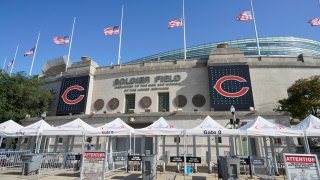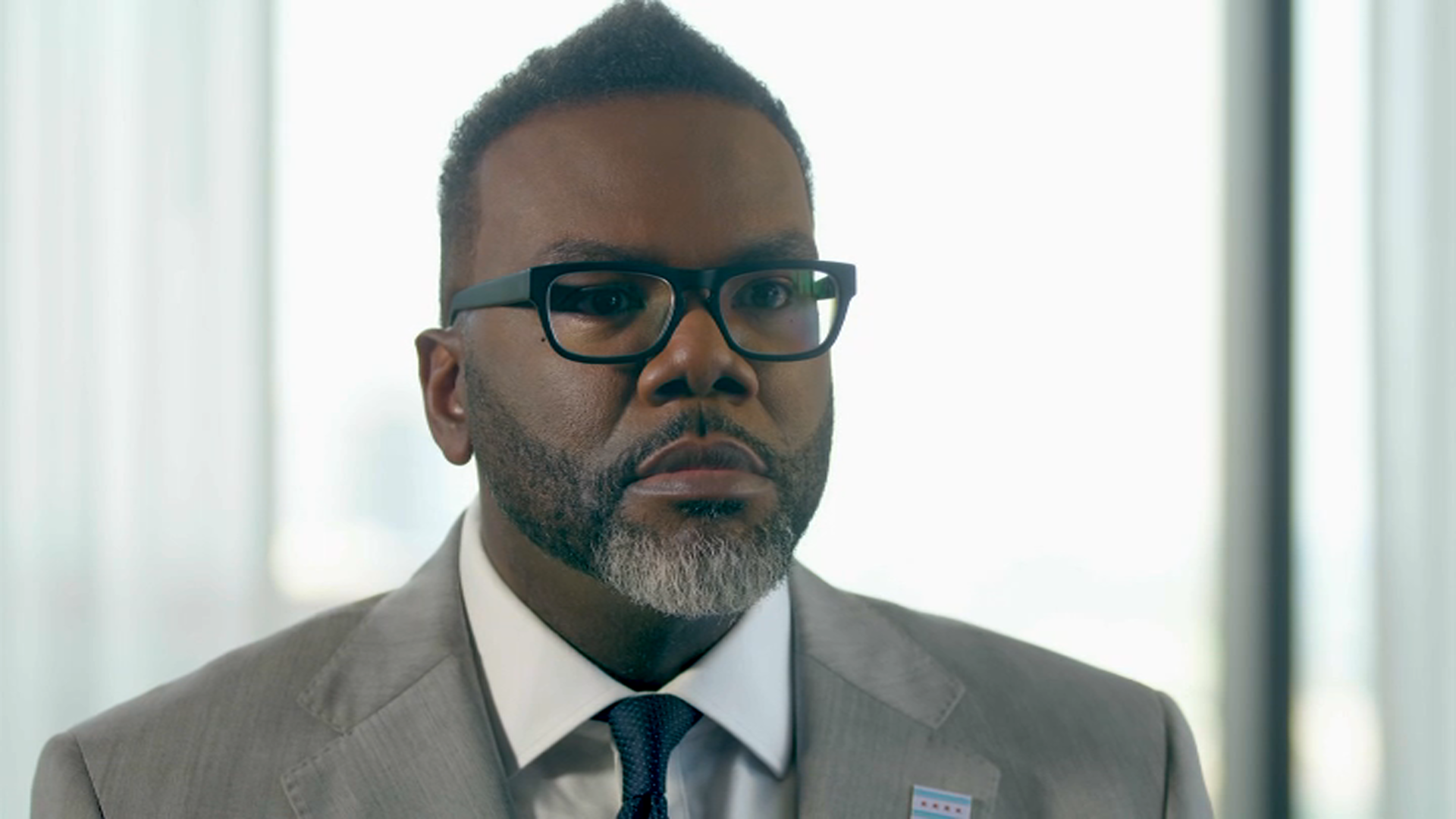
As the Chicago Bears and White Sox look for opportunities to obtain public funds for new stadiums, a high-profile project in Kansas City was rejected by voters on Tuesday.
Voters in Jackson County, Missouri rejected a sales tax that would have helped fund a new downtown ballpark for the Kansas City Royals and major renovations at Arrowhead Stadium, home of the Kansas City Chiefs.
More than 58% of voters rejected the plan, which would have replaced an existing three-eighths of a cent sales tax that has been paying for the Truman Sports Complex. The new tax would have been in place for the next 40 years.
The Royals had pledged at least $1 billion from ownership for the project, and would have used revenues to fund a new $2 billion ballpark district.
Feeling out of the loop? We'll catch you up on the Chicago news you need to know. Sign up for the weekly Chicago Catch-Up newsletter here.
The Chiefs had committed $300 million in private funds toward renovations at Arrowhead Stadium, and would have used that money towards an $800 million overhaul of the stadium.
That defeat comes amid pushes by the White Sox and Bears to obtain public assistance for new stadiums. The White Sox are seeking funding from the state of Illinois for a new stadium project in the South Loop, while the Bears are looking into financing options for a new stadium just to the south of Soldier Field on Chicago's lakefront.
The plans have been met with some skepticism by public officials at the city and state levels, and some leaders are even pushing ideas to give taxpayers additional input into the decision.
Local
Former Illinois Gov. Pat Quinn filed an ordinance at the City Clerk's office in March to ask the City Council to put a referendum on the November ballot allowing voters to decide if their tax dollars will go toward stadium construction projects.
“What we want to do is give the people of the city a chance to vote on this issue in November," Quinn told reporters. "I think the people of Chicago are sports fans, big time sports fans, but we’re also fans of the taxpayer.”
The referendum would ask taxpayers directly about the proposed White Sox and Bears projects.
"Shall the people of Chicago provide any taxpayer subsidies to the Chicago Bears or Chicago White Sox in order to build a new stadium or real estate development?," the language read.
While both teams are pursuing some measure of public financing for new stadiums, their current homes have not been fully paid off, according to NBC 5 Investigates.
Quinn says that the projects, approved in the 1980s and early 2000s, should have been subjected to more scrutiny.
“The city of Chicago back then didn’t have a chance to vote on whether or not remodeling Soldier Field into a space ship was a good idea," Quinn said. “Let the people speak, the people who pay the taxes, who are the heart and soul of our city.”
The Bears recently shifted their focus away from the multi-million dollar Arlington Heights property, to the lakefront downtown. Executives said they would invest $2 billion into the project, but it's unclear where the rest of the funding would come from.
The timing of the lakefront announcement came just a few weeks after White Sox Chairman Jerry Reinsdorf met with leaders in Springfield to ask for at least $1 billion for a new stadium.
Quinn conducted and paid for his own poll through Blueprint Polling prior to filing the ordinance Wednesday. In the numbers he provided, 65% of voters opposed taxpayer subsidies, while 25% supported it. The rest weren’t sure.
“The best poll is the one at the ballot box where the people themselves get to during a presidential election year express their opinion," Quinn said.
He attempted to pass a similar referendum nearly 25 years ago for Soldier Field remodeling, but the City Council did not vote to include it on the ballot.
The proposal will go in front of City Council members and Mayor Brandon Johnson on April 17.



